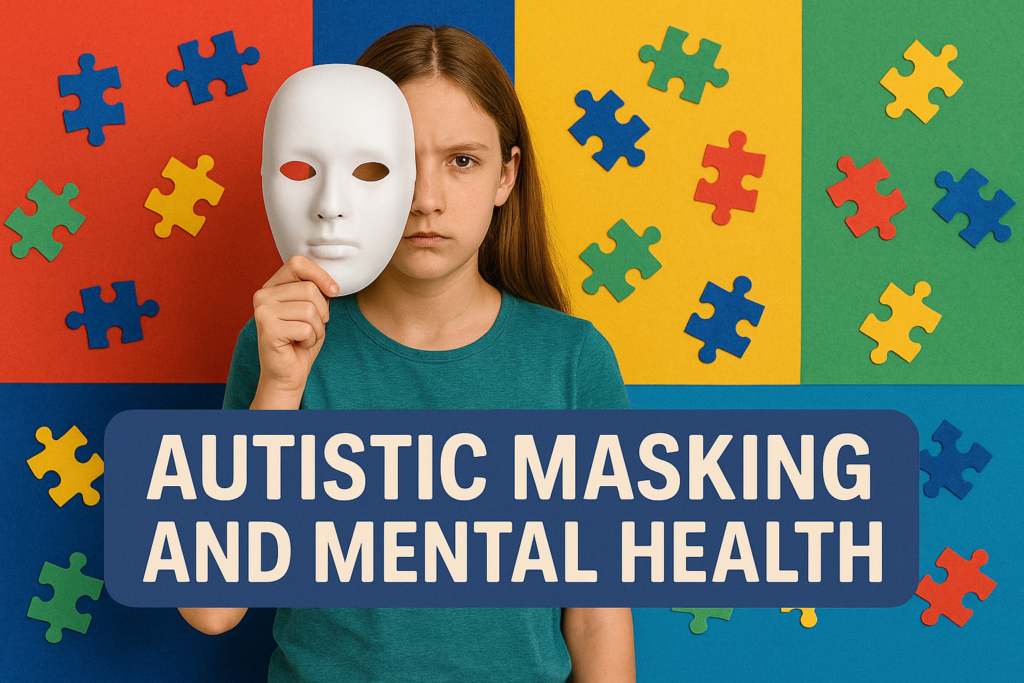🧠🌈 Understanding Autistic Masking: A Hidden Struggle
Autistic masking refers to the conscious or unconscious suppression of autism traits in order to blend into neurotypical environments. People on the autism spectrum often feel pressured to conform to societal expectations, which leads to masking behaviors such as forced eye contact, scripted conversations, mimicking social cues, or hiding stimming (self-stimulatory behavior).
😔 Why Do Autistic Individuals Mask?
Masking is often a survival mechanism. Many autistic individuals learn from an early age that their natural behaviors are considered socially unacceptable or misunderstood. They may:
- Face bullying or exclusion 🤐
- Want to keep friendships or jobs 👥💼
- Avoid judgment or being labeled 😔
Although masking helps in short-term adaptation, it takes a significant emotional toll over time.
🧩 Mental Health Impacts of Masking
Masking can lead to several mental health challenges:
- Chronic stress and anxiety 😨
- Burnout and fatigue 💤
- Depression 😢
- Loss of identity or sense of self ❓
- Increased risk of suicidal ideation 💔
Research shows that the longer masking continues, the higher the emotional toll becomes, especially in individuals diagnosed late or unsupported.
📊 A 2020 study found that 70% of autistic adults reported engaging in masking regularly, and those who masked most often also had the highest rates of mental health difficulties.
🧘♀️ What Does Unmasking Mean?
Unmasking is the process of embracing one’s autistic identity and expressing traits openly without shame or suppression. It may include:
- Allowing oneself to stim openly 🙌
- Using alternative communication tools like AAC devices or text ✍️
- Setting boundaries around sensory overload 🛑
- Finding autistic communities for validation 🤝
💡 How to Support Someone Who’s Masking
✔️ Believe their experience—masking is invisible but very real.
✔️ Encourage self-acceptance and affirm neurodiversity.
✔️ Make spaces sensory-friendly (lighting, noise, smell). 🕯️🎧
✔️ Offer nonjudgmental environments where they can be themselves.
✔️ Learn from autistic voices through blogs, talks, and books. 📚
🛠️ Professional Support Options
- Therapy with neurodivergent-affirming professionals
- Peer support groups for autistic individuals 🧑🤝🧑
- Occupational therapy focused on regulation skills and energy conservation
❤️ Support Autism Wings Inc.
At Autism Wings Inc., we believe in creating holistic support systems for children with autism—including nutritional education, therapy, and soon, a dedicated school!
We’re currently raising funds to build a specialized Autism School that nurtures every aspect of development. Your contribution can change lives.
👉 Donate Now
❤️ Final Thoughts
Autistic masking is an exhausting reality for many individuals on the spectrum. Creating a world that celebrates neurodiversity and allows for authentic self-expression is not just beneficial—it’s essential.
✨ Let’s replace survival with thriving. Masking should never be the cost of inclusion.

